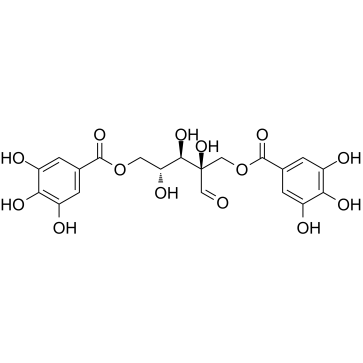Suppression of biofilm related, device-associated infections by staphylococcal quorum sensing inhibitors.
M D Kiran, A Giacometti, O Cirioni, N Balaban
Index: Int. J. Artif. Organs 31(9) , 761-70, (2008)
Full Text: HTML
Abstract
Staphylococcal spp. are notorious for causing biofilm-related device-associated infections, leading to tens of thousands of deaths per year. In this paper, we review quorum sensing inhibitors as potential therapeutics for even the most persistent infections. The animal models reviewed are subcutaneous graft, central venous catheter (CVC), ureteral stent and wound models, and a wound case study. The therapeutic approaches reviewed are the use of RNAIII inhibiting peptide (RIP) and its non-peptide analog. These have been shown to prevent or treat infections caused by any staphylococcal strain tested, including antibiotic-resistant strains like CA-MRSA USA300.
Related Compounds
| Structure | Name/CAS No. | Molecular Formula | Articles |
|---|---|---|---|
 |
Hamamelitannin
CAS:469-32-9 |
C20H20O14 |
|
Quorum sensing inhibitors increase the susceptibility of bac...
2011-06-01 [Antimicrob. Agents Chemother. 55 , 2655-2661, (2011)] |
|
Hamamelitannin from witch hazel (Hamamelis virginiana) displ...
2012-01-27 [J. Nat. Prod. 75 , 26-33, (2012)] |
|
Cerium, chitosan and hamamelitannin as novel biofilm inhibit...
2012-05-01 [J. Antimicrob. Chemother. 67 , 1159-62, (2012)] |
|
Genotoxic and antigenotoxic effects of catechin and tannins ...
2003-05-01 [Phytochemistry 63(2) , 199-207, (2003)] |
|
Discovery of a quorum-sensing inhibitor of drug-resistant st...
2008-05-01 [Mol. Pharmacol. 73(5) , 1578-86, (2008)] |